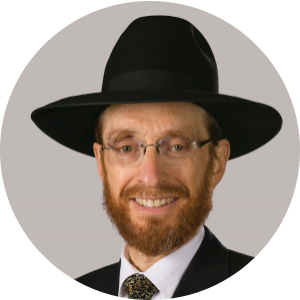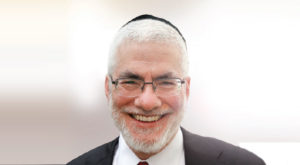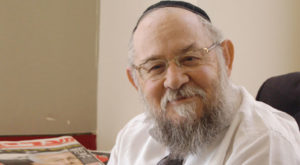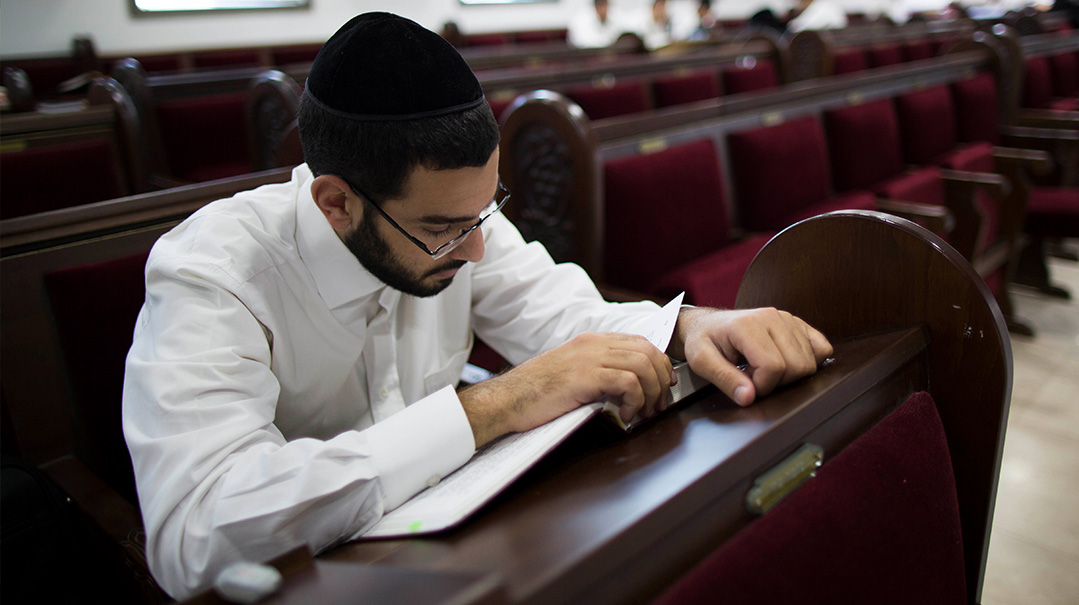“Yikes! My Parents Are Coming for Yom Tov!”

As they age, many parents become impatient, short-tempered, and/or cantankerous. When this happens, it poses serious challenges for their adult children
R
eena (not her real name) was a high-functioning, 20-something mother of three when she first consulted me a few years ago. I had successfully helped her husband over a bout of depression in the past, and Reena was hoping I could assist her now, too.
“It’s my relationship with my mother,” she explained, wasting no time in getting straight to the reason for her visit. “She’s driving me crazy and I just can’t take it anymore.”
With stress written all over her face, she poured out the details of the history of her conflict-ridden relationship with her mother.
As the oldest daughter, Reena had initially enjoyed an almost privileged status with her mother, who would never go shopping without bringing Reena along as a fashion advisor. Her mother was so attached to Reena that it often made her feel uncomfortable. When Reena married, however, all of that suddenly changed. Almost overnight, Reena became the black sheep in her mother’s eyes. In the six years since Reena had married, her mother had not visited her even once, despite the fact that she lived only a few blocks away.
“I know she has borderline personality disorder,” Reena stated authoritatively. “But I simply don’t know how to deal with her.”
“How do you know she’s borderline?” I asked. “Has she been evaluated by a therapist?”
“No,” Reena replied. “I Googled the condition, and all of the symptoms describe her.”
“Give me a recent example of her interaction with you that you feel indicates that she is borderline,” I asked.
“Okay,” Reena eagerly complied. “My mother often insults me or my husband in public, which makes me very anxious whenever I know I will meet her. For example, we have a family simchah coming up. She will certainly be there, and I will have to greet her because it would be disrespectful for me not to. But she is angry at me now and refuses to speak with me unless I apologize to her. The last time this happened, I was terribly embarrassed when I greeted her in public and she deliberately turned away, ignoring me.”
“Do you know what she wants you to apologize for?” I probed.
“Sure,” Reena shot back. “For her birthday two weeks ago, I bought her an expensive sweater that she really likes and wears. But she feels that it was not a personal enough gift, and she sent me a message through my father that she will not resume speaking to me unless I apologize.”
“I would never diagnose someone I haven’t met,” I said. “But that does sound borderline. What would happen if you just didn’t greet your mother at the upcoming simchah?”
“Oh, my father would never let me get away with that,” Reena said, throwing her hands in the air. “He is always reminding me about kibbud av v’eim.”
I then explained to Reena that every mitzvah has special guidelines for unusual or unique circumstances, and that she should perhaps discuss this situation with her rav. I then referred her to an article written by my dear friend and colleague, Dr. Benzion Sorotzkin, “Honoring Parents Who Are Abusive,” and suggested she read it on his website prior to asking her rav for hadrachah.
Dr. Sorotzkin’s article is extensively referenced and should be read in depth by anyone in Reena’s predicament, but the gist of it is as follows:
Many people cite the classical example of the non-Jew Dama ben Nesina (Kiddushin 31a) to justify an “anything goes” attitude regarding parental treatment of children. Dama was once sitting among the noblemen of Rome, when his mother approached, tore off his expensive cloak, smacked him upside the head, and spit before him. Despite his embarrassment, Dama did not shame his mother in retaliation, and he earned the praise of Chazal for his self-control.
There are two critical qualifiers to this episode, however.
First, Tosafos (s.v. Uva’as imo v’karato, based on Devarim Rabbah 1:14) adds that Dama’s mother was insane, suggesting that Dama might not have had to be so tolerant had his mother not been mentally ill. Furthermore, that same midrash adds a noteworthy detail to the account: Dama did say, “Enough, mother,” which suggests that some sort of response may be acceptable even when dealing with a parent who is severely mentally ill.
The following week, a much-relieved Reena returned. She had read the article and had found it very enlightening, and she felt better prepared to consult with her rav regarding the steps she could take in order to protect herself from her mother’s hurtful behavior.
Certainly, most parents are not as difficult as Reena’s mother.
Nevertheless, as they age, many parents become impatient, short-tempered, and/or cantankerous. When this happens, it poses serious challenges for their adult children. And while this is true throughout the year, it becomes especially problematic around Yom Tov, when interaction between parents and children tends to increase.
Many years ago, I was working with Shaindy (not her real name), a speech therapist in her fifties with a bustling household, to address her disappointments in marriage. During one visit, she asked if she could bring up an unrelated concern.
She went on to relate that in two weeks, her parents were coming to spend the entire Pesach with her. Apparently, one sibling lived too far away, and another had no ground-floor bedrooms that could accommodate their physical limitations. By default, therefore, Shaindy’s parents had to come to her. And she was dreading the visit.
Filling me in on her family background, Shaindy explained that her parents had had a storybook marriage. They were so deeply committed to each other that Shaindy and her siblings often felt they took a back seat to their parents’ relationship with each other. Four years earlier, however, Shaindy’s mother had been diagnosed with Alzheimer’s disease, and now her mother did not recognize any family members, including her husband.
Shaindy had come to terms with her mother’s Alzheimer’s disease, but she had a difficult time handling her father’s bitterness about his wife’s decline. Instead of the upbeat, positive, and fun-loving father he had always been, he became sour, irritable, and impossible to please, constantly spreading negativity and kvetching about everything. As a result, Shaindy was very much not looking forward to the Sedarim, which she knew would be laced liberally with her father’s grumbling that everything was taking too long.
“Do you ever have guests on Shabbos or Yom Tov?” I asked.
“Of course, all the time,” Shaindy replied.
“Do you ever have strange or unusual guests?” I probed.
“Are you kidding?” Shaindy laughed. “The local Bikur Cholim sends us their weirdest cases. As far as we’re concerned, the odder the better!”
“That’s great,” I enthused. “Now, here’s what I want you to do. When your parents come for Pesach, I want you to lower your expectations for your father. In other words, try to look at your parents as another Bikur Cholim case, and see if that helps you tolerate your father’s impatience.”
A few weeks later, Shaindy returned and happily reported that she had had “the best Pesach ever.” She had implemented my suggestion, and the detachment even helped her enjoy her parents’ visit.
During this upcoming Yom Tov season, when so many adult children will be spending more time with their parents, some of whom may be difficult to deal with, it would be helpful to keep the following “mathematical formula” in mind, which I frequently share with my clients:
Disappointment = Expectation – Reality
By definition, reality is something we cannot change. Our expectations, however — for relationships, events, or any experience — are subject to adjustment. The greater the difference between our expectations and reality, the greater our disappointment. But if we are able to downsize our expectations, then we can minimize or even completely eliminate our disappointment.
Having a truly great Yom Tov, even with difficult parents, is really is up to you.
Good Yom Tov!
Dr. Meir Wikler, a frequent contributor to this space, is an author, psychotherapist, and family counselor in full-time private practice with offices in Brooklyn, New York, and Lakewood, New Jersey. He is also a public speaker whose lectures and shiurim are broadcast on TorahAnytime.com.
(Originally featured in Mishpacha, Issue 777)
Oops! We could not locate your form.













